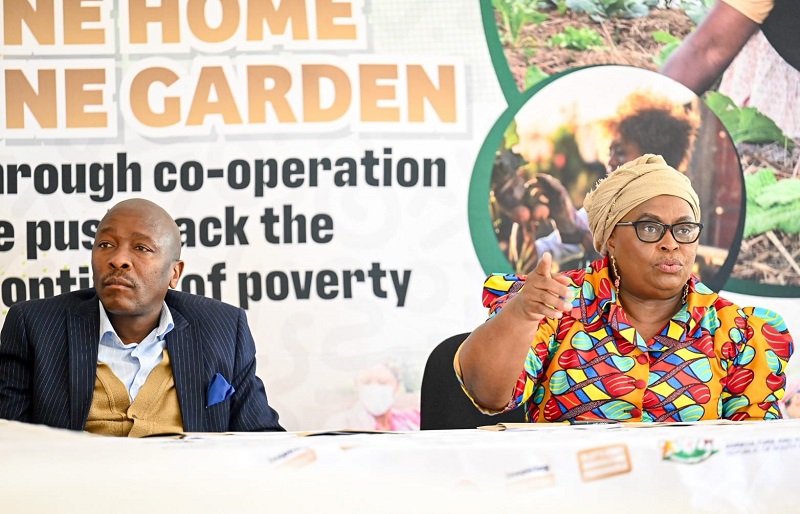A lack of interest in learning about indigenous foods, coupled with the absence of knowledge transfer regarding the harvesting, preparation and preservation of these foods, have contributed to the decline in consumption of traditional foods. That's according to the MEC for Agriculture and Rural Development Ms Thembeni kaMadlopha-Mthethwa while speaking to hundreds of people at JB Madlala Sportfield on 30 September 2025 under Ray Nkonyeni Local Municipality on the KwaZulu-Natal south coast. The visit to the south coast comes as the country concludes the Heritage Month.
Before the address, MEC kaMadlopha-Mthethwa conducted an inspection of agricultural indigenous foods on exhibit, where a rich aroma of indigenous cuisine permeated the exhibition room, delighting guests and locals who were treated to a goat meat curry and sausages, amadumbe, fruits and green leafy vegetables.
The Department has committed itself to creating a platform for empowering farmers with indigenous knowledge, in as far production of indigenous foods is concerned.
MEC kaMadlopha-Mthethwa has encouraged the public to use indigenous crops, saying that they are known to be more resilient to drought and other environmental challenges, "they adapt and perform well in non-fertile soils and respond well to organic fertiliser. They require little to no chemicals. What is also fundamentally important is that their seeds can be preserved and replanted, which is essential in alleviating poverty and food insecurity.”
Indigenous foods are nutritionally superior to commercial crops, which necessitates the Department’s stance to urge farmers to revert to the old ways of producing organic foods in order to enjoy their nutritional benefits.
kaMadlopha-Mthethwa expressed her concern that despite an abundance of indigenous vegetables and fruits in KwaZulu-Natal, people continue to suffer from food and nutrition insecurity, "the consumption of indigenous foods such as Jugo beans (Izindlubu), cowpeas, green leafy vegetables (Imbuya) and pumpkin leaves is declining. This decline has been attributed to several factors, including the westernisation of indigenous food diets, due to the perception that wild vegetables are low-income foods and are associated with poverty. This is merely a perception," said kaMadlopha-Mthethwa.












 Anonymous National Anti-corruption Hotline: 0800 701 701
Anonymous National Anti-corruption Hotline: 0800 701 701






